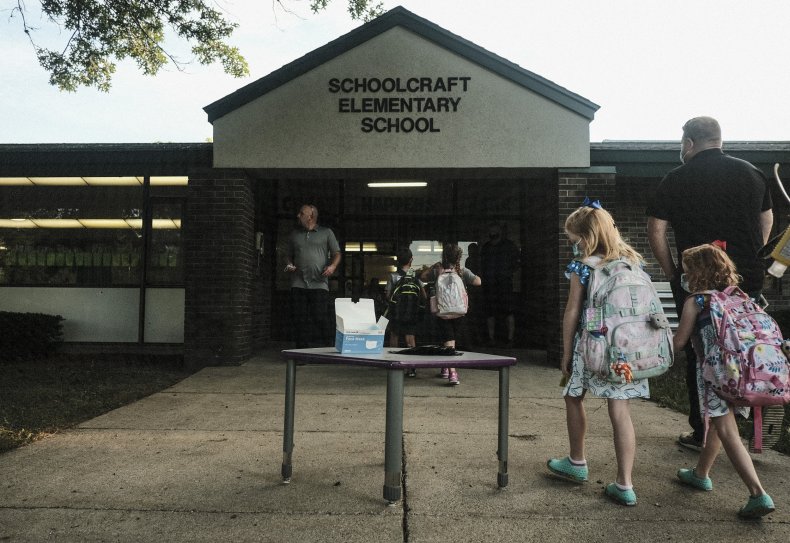A new bill signed into law by Michigan Governor Gretchen Whitmer on Monday will allow schools to call in unexpected substitutes amid a major teacher shortage.
Under this legislation, non-teaching staff members at schools can now be conscripted as substitute teachers. Those would include bus drivers, administrative workers, cafeteria workers, and librarians. The only requirement that these workers will need is a high school diploma or equivalent certificate.
According to previous rules, non-teaching staff members were required to have at least an associate's degree or 60 semester hours of college credit in order to work as substitute teachers. An exception could be made for technical or career-oriented classes.
Whitmer announced on Monday that she had signed the bill last week and called its provisions a "temporary stopgap" as the state continues to seek more long-term solutions, according to Fox 2 Detroit.
"The pandemic has been challenging for our children, teachers, and parents, and our educators have gone above and beyond to ensure Michigan's children have a bright future," the governor said in a statement. "Allowing schools to employ school staff that students know as substitute teachers will help keep school doors open and students learning in the classroom the rest of the school year. I am committed to working with the legislature to develop high-quality solutions to address these staff shortages long-term so that we can ensure that every child is able to access a quality education."

The bill was previously approved by the Republican-led Michigan legislature on its way to the desk of Whitmer, a Democrat. However, many other Democrats in the legislature opposed it. Democratic State Senator Dayna Polehanki called the legislation a "faulty attempt to mitigate the substitute teacher shortage by playing musical chairs with support staff."
"We can't rip parapros away from their work with special education kids or secretaries from their critical duties as the first point of contact with anyone who seeks to enter the building," Polehanki added.
The bill was also opposed by the Michigan Education Association, the largest union for public employees in the Great Lake State.
"If elected officials are serious about solving this shortage, they need to work to raise educators' pay and treat them like the professionals they are," union spokesman Thomas Morgan said in a statement. "Anything else is at best a stopgap solution to a massive problem."
Conversely, the bill was supported by school administrators. Paul Liabenow, executive director of the Michigan Elementary & Middle School Principals Association, argued in favor of it, saying that it will give schools more flexibility in meeting the demand for teachers created by the pandemic.
Schools nationwide faced similar shortages of bus drivers in August, when the current school year was commencing. In order to fight staffing shortfalls, schools began cutting back the requirements for bus driver positions and offering sign-on bonuses. One school district in Delaware offered a paid incentive for parents to drive their children to school.

Post a Comment